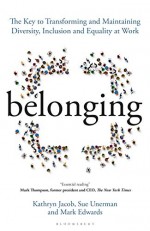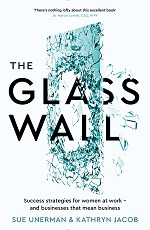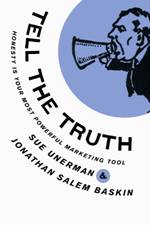 On a scale of 1 to 5, how do you feel about your role in the company?
On a scale of 1 to 5, how do you feel about your role in the company?
Both these questions are lifted from Jeff Sutherland’s new book “Scrum: the art of doing twice the work in half the time”.
In many sectors, including media agencies, we need to do more work in less time because we need to do more work to arrive at an optimal connected media plan. In the last decade the number of channels and considerations to produce a plan that is connected, has no silos and is delivering effective outcomes has obviously increased. The automation that will take time out of the process is not yet fully established.
So Sutherland’s idea is an attractive one. More work, less time.
How interesting that the method to get there is rooted in happiness.
So how happy are you in your job?
I’ve met two people recently, both in their forties, who are counting the days till they can retire. One’s a mini cab driver, of course the traffic in London in the last few weeks is enough to make anyone fairly miserable. The other one is a senior media executive, with a great job. It seems to me that neither of them are spending enough time thinking about what would make them happier in their current roles and too much time planning how to escape them.
This summer I had lunch with a man in his late forties who has achieved that dream, and is planning to leave the business within months. He’s very analytical. He had calculated that 90 per cent of the time he is in meetings or at social events professionally that he hates.
As we enter an era of great change in the rise of robots in one form or another being capable of more and more tasks the greatest consideration at work should move from efficiency to happiness. After all the robots can provide the former. Only people can find the latter.
People usually say that it is other people that make them happy. Social psychologist Jonathan Haidt explains this by pointing out that we are, deep down, still pack animals. We are bound by our heritage and we are social animals who get affirmation from approval of the leaders of our communities. This is of course one reason why great management can make people happy. They want the recognition of the alpha pack animal. Our survival is no longer as dependent on it as it once was, but in the work place it can feel as crucial to have your boss recognise and approve of you. If you’re working somewhere where your boss never appears except on their way to a very important meeting (or golf course) without you and doesn’t notice what you do then it can be very hard to be happy about your working day.
So we are like chimps in the office in that respect. We want affirmation from the leader. Haidt however adds that we are also “part bee”. The bee part is crucial to our happiness too. Bees work for a common cause, not just for individual recognition. They don’t compete with each other within the hive. The hive works together to make honey and ensure the survival of the next generation. A hive-like work place is one where teams work together for a common goal. There is less of a focus on an alpha leader recognising an individual and more on celebrating the inclusiveness of everyone in the team.
So more happiness makes for more effective ways of working. Bees are (arguably) happier and definitely more productive than chimps.






I completely disagree
Friday, November 27th, 2015Too often a panel will be reticent to argue in public it seems.
In addition there is more and more compliance in public or indeed in small circles with the party line. I was struck by the non-party line taken by one sales director of a media owner last week, where he felt very free to dismiss aspects of their content as not quite hitting the mark. It was very convincing and I am impressed by his integrity, and bravery. These days there is a tendency for some businesses to want to present a completely shiny and flawless united front to the outside world. Apart from the fact that it isn’t very believable it begs a question about the culture of the organisation that public dissent is discouraged.
How far should you go with disagreements in public? All the way. I don’t believe that someone’s relative status (whether more or less senior), gender or age should mean that you must comply publically or privately with what they say. I am very aware that not many people see this like this.
I can remember one head of department expressing ambivalence about running department meetings (he had a department of over 100). He said that he could imagine nothing worse than making an announcement to the team and being publically challenged. I can imagine nothing better. If someone has the conviction to challenge their department head publically then they must be so passionate, so convinced and so interested in the issue that this intervention would have huge value.
I believe in dialectic. That if I put across a point of view, and someone disagrees with me then we can both build together on our perspectives to arrive at a creative and innovative answer. So there is a thesis (a thought or opinion), followed by a disagreement or challenge which is the antithesis, which in turn can be resolved by the synthesis – a refinement of the idea or thought.
In the fast moving times that we all work in, no-one has the definitive answers to all of the questions and challenges that we face. We can only work with good convincing evidence, and no answer is a proved answer in perpetuity anymore. We can know that something works for now, until that situation changes. We need to be specific about what we know and we don’t know for fact (there are too many woolly claims and vague notions), and open to everything being challenged or disagreed with.
Does everyone have the resilience for public challenge? Perhaps not, but it is a useful thing to learn, especially if you are a leader. The peer reviewed VIA Classifications are a good resource to understand how to build resilience. They include: “not shrinking from threat; speaking up for what is right even if there is opposition; curiosity and speaking the truth”.
It has been suggested to me that one should never disagree with a colleague in public, you should always stick to the party line and present challenges in private. Yet we are working in an era where the landscape “is not remotely stable but is changing at mindboggling speed” as Martha Lane Fox puts it. You can’t really have a very agile approach to business if you can’t disagree in public can you?
Or do you completely disagree?
Posted in MediaComment | No Comments »